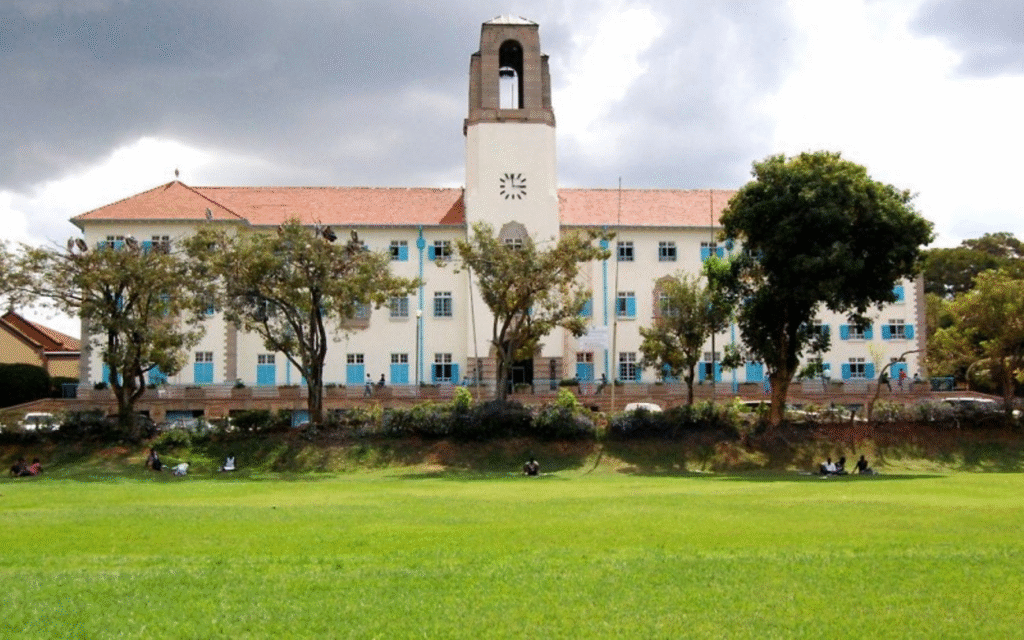
KAMPALA.
The management of Makerere University dismissed reports that Uganda’s premier university is slipping back in its ranking in the 2025 Times Higher Education (THE) university rankings.
In a statement issued on Tuesday, the university management insists that the latest Sub-Saharan Africa list where the Daily Monitor extracted its July 8 story titled “ Mak Drops Marks” has not yet been officially released.
The university described The Monitor article misleading, accusing the article of conflating the global and Sub-Saharan African university rankings to paint an inaccurate picture of the university’s performance.
“The article inaccurately combines the Sub-Saharan African University Rankings and the World University Rankings to portray a misleading performance trend for Makerere University,” the statement reads in part. “For clarity, Makerere University was ranked 8th in the 2024 Sub-Saharan Africa rankings.
However, the 2025 Sub-Saharan rankings have not yet been released.”
However, publicly available data on the Times Higher Education website shows that Makerere University was listed in the 41st position in Sub-Saharan Africa, tied with 33 other universities across the continent. Globally, Makerere is ranked in the 1201–1500th band in the 2025 World University Rankings.
Times Higher Education ranks universities using five key performance areas: Teaching (learning environment), Research Environment (volume, income, and reputation), Research Quality (citation impact, excellence, and influence), International Outlook (staff, students, and research collaboration), and Industry Income (income from innovation and patents).
For Makerere in 2025, THE ranked the university as follows: teaching at 20.9 percent, research environment at 6.4 percent, research quality at 45.1 percent, industry income at 20.1 percent, and international outlook at 67.4 percent. These figures were reported in the Daily Monitor story.

The university further expressed concern that the article ignored its significant progress in the 2025 Impact Rankings, which measure universities’ contributions to the United Nations Sustainable Development Goals (SDGs). Makerere moved from the 601–800 band in 2024 to the 301–400 band globally in 2025.
“Makerere University significantly improved its global standing, moving from the 601–800 band in 2024 to the 301–400 band in 2025. Notably, the university ranked 17th globally in Decent Work and Economic Growth and within the 401–600 band for Quality Education. These achievements reflect Makerere’s commitment to societal impact and sustainable development, which the article conspicuously ignores,” the statement added.
Daily Monitor had reported that in the category of Good Health and Wellbeing, THE placed Makerere in the 601–800 range; in Quality Education and Gender Equality, the university ranked in the 301–400 range. Its best performance came in Decent Work and Economic Growth, where it ranked 17th globally, with a score of 82.7 percent.
“While Makerere University acknowledges a decline in certain parameters in the World University Rankings, we view these as areas for improvement. At the same time, we celebrate our strengths, including high-quality research output and a robust international outlook, which continue to position Makerere as a leading institution globally,” the statement noted.
The university also acknowledged a dip in performance in some areas and pledged to address the gaps that contributed to the lower ranking compared to previous years.
Responding to the article on Sunday, Vice Chancellor Prof Barnabas Nawangwe acknowledged the shortcomings and said the university is working to rectify them.
“It is true our ranking according to Times Higher Education has slid considerably. While we were ranked top in Africa for the impact of our research, we slid on other parameters. On research, we improved significantly in terms of the number of publications, ranking 4th on the continent, yet our citation index did not improve by the same magnitude. We ranked low on the ratio of international and graduate students, and international faculty, which are new parameters that have been introduced,” he said.
He also attributed some of the challenges to limited funding, noting that other countries are heavily investing in their institutions.
“Heavy investment in universities in China, India, Egypt, and other countries to enable their universities to rise in global rankings is also a factor. We are studying these developments and are taking appropriate measures to respond to them in order to recover our ranking globally and regionally. Our ranking by other agencies remains stable and favourable,” he said.